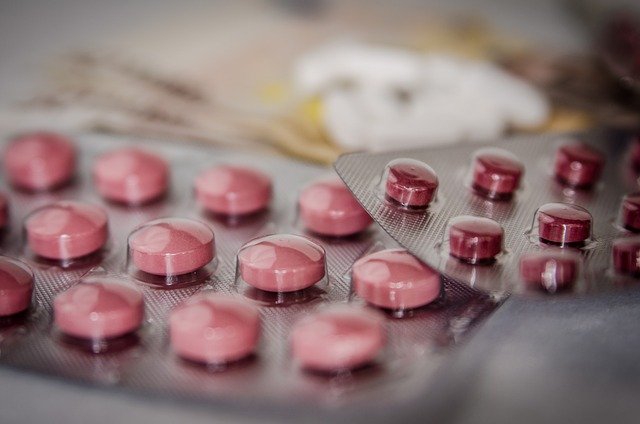Medications Causing Kidney Disease: What Patients Should Understand About Potential Risks
Kidneys play a vital role in filtering waste and maintaining overall health, but certain medications can place unexpected stress on these essential organs. While many drugs are necessary for managing chronic conditions, some carry risks that may compromise kidney function over time. Understanding which medications pose potential threats, recognizing early warning signs, and maintaining open communication with healthcare providers are crucial steps in protecting kidney health while managing other medical needs.

The kidneys are responsible for filtering blood, removing toxins, and regulating fluid balance in the body. However, certain medications prescribed for common health conditions can inadvertently harm these organs. While most drugs are safe when used as directed, some carry risks that may lead to acute kidney injury or chronic kidney disease. Patients taking multiple medications or those with pre-existing kidney concerns face heightened vulnerability. Awareness of these risks empowers individuals to work closely with their doctors to balance treatment benefits against potential kidney-related complications.
How Certain Medications Can Impact Kidney Function
Medications affect kidney function through various mechanisms. Some drugs reduce blood flow to the kidneys, limiting their ability to filter waste effectively. Others cause direct cellular damage to kidney tissue, leading to inflammation or scarring. Certain medications increase the workload on kidneys by altering fluid and electrolyte balance, while some promote the formation of crystals that can block kidney structures. Prolonged use or high doses of these drugs amplify risks, particularly in individuals with diabetes, hypertension, or existing kidney impairment. Dehydration, advanced age, and concurrent use of multiple nephrotoxic drugs further elevate the likelihood of kidney damage.
The kidneys metabolize and eliminate many medications, making them vulnerable to drug-induced injury. When kidney function declines, drug clearance slows, potentially causing toxic accumulation. This creates a cycle where medication damage reduces kidney efficiency, which in turn increases drug toxicity. Understanding these mechanisms helps patients and providers make informed decisions about medication selection, dosing adjustments, and monitoring strategies to minimize harm while achieving therapeutic goals.
Types of Drugs Commonly Linked to Kidney Stress or Damage
Several medication classes are known to pose risks to kidney health. Nonsteroidal anti-inflammatory drugs, commonly used for pain and inflammation, can reduce kidney blood flow and cause acute injury, especially with long-term use. Certain antibiotics, particularly aminoglycosides and some antifungals, are directly toxic to kidney cells. Proton pump inhibitors, widely prescribed for acid reflux, have been associated with chronic kidney disease and acute interstitial nephritis in some patients.
Diuretics, while helpful for managing fluid retention, can lead to dehydration and electrolyte imbalances that strain the kidneys. Some blood pressure medications, particularly ACE inhibitors and ARBs, may temporarily affect kidney function, though they often provide long-term kidney protection. Chemotherapy agents, immunosuppressants used after organ transplants, and certain antiviral medications also carry nephrotoxic potential. Contrast dyes used in imaging procedures can trigger acute kidney injury, particularly in patients with pre-existing kidney disease or diabetes.
Over-the-counter supplements and herbal remedies are not without risk either. Some contain heavy metals or compounds that accumulate in kidney tissue. Patients should disclose all medications, supplements, and herbal products to their healthcare providers to enable comprehensive risk assessment and appropriate monitoring.
Symptoms to Watch For and When to Discuss Concerns with a Doctor
Early kidney damage often produces subtle or no symptoms, making vigilance essential. Patients should watch for changes in urination patterns, including decreased urine output, foamy or bloody urine, or increased nighttime urination. Swelling in the legs, ankles, feet, or face may indicate fluid retention due to declining kidney function. Persistent fatigue, weakness, and difficulty concentrating can result from toxin accumulation in the blood.
Other warning signs include unexplained nausea, loss of appetite, metallic taste in the mouth, and shortness of breath. High blood pressure that becomes difficult to control may signal kidney involvement. Muscle cramps, itching, and changes in skin color can also occur as kidney function deteriorates. Any combination of these symptoms warrants prompt medical evaluation, particularly in patients taking known nephrotoxic medications.
Patients should discuss kidney health concerns with their doctor before starting new medications, especially if they have risk factors such as diabetes, hypertension, heart disease, or a family history of kidney problems. Regular monitoring through blood tests measuring creatinine and glomerular filtration rate, along with urine tests checking for protein or blood, helps detect early kidney damage. Open communication about all medications, including over-the-counter drugs and supplements, enables providers to adjust treatments, modify doses, or implement protective strategies to safeguard kidney function while managing other health conditions.
This article is for informational purposes only and should not be considered medical advice. Please consult a qualified healthcare professional for personalized guidance and treatment.
Protecting kidney health while managing chronic conditions requires a balanced approach. Patients should never discontinue prescribed medications without medical guidance, as the underlying conditions being treated may pose greater immediate risks than potential kidney effects. Instead, regular monitoring, adequate hydration, avoiding unnecessary nephrotoxic drugs, and working closely with healthcare providers create the best framework for maintaining both kidney function and overall health. Awareness and proactive communication remain the most powerful tools patients have in preventing medication-related kidney damage.




